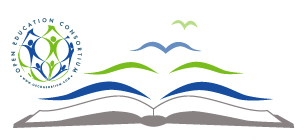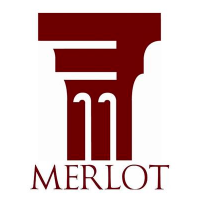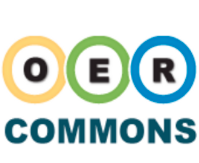Each Monday until the beginning of the school year, the HLBLL blog will feature a Summer Series on Fall Teaching (SSOFT), with brief writeups and links to resources in the CUNY world and beyond to help you prepare for the upcoming semester of teaching in CUNY.
This week, SSOFT features Open Educational Resources (OER).
Past SSOFT features:
The Graduate Center’s Teaching and Learning Center
Free course sites and Social Paper: OpenCUNY, The CUNY Academic Commons, and Social Paper
Resource Repositories: CUNY Syllabus Project, CUNY Academic Works
Open Educational Resources (OER)
Open Educational Resources (OER) are, according to the William and Flora Hewlett Foundation “teaching, learning, and research resources that reside in the public domain or have been released under an intellectual property license that permits their free use and re-purposing by others. Open educational resources include full courses, course materials, modules, textbooks, streaming videos, tests, software, and any other tools, materials, or techniques used to support access to knowledge.” Many OER are licensed under the Creative Commons, which allows users to access, copy, and share the work (non-commercially, very often), and also may allow for some adaptation or remixing of the material.
Whether you’re looking for ways to tweak your syllabus, provide enriching one-day lessons, or jump start lesson planning of your own, OER could prove useful in your teaching this fall. CUNY Central’s Library Services maintains a guide on OER and also an OA/OER Toolkit. Included in the OER guide is a non-comprehensive list of OER that you could employ in your classrooms. Click through on the links below for some OER guide highlights for you to explore in greater depth.
OER Libraries and Databases
OER Commons: A library of digital OER with advanced search tools to find the appropriate resources by course subject, course level, resource type, etc. Follow OER Commons on Twitter.
 Community College Consortium for Open Educational Resources: CCCOER maintains a list of OER, with corresponding links to content. One CCCOER goal is to enlist community college professors to refine and expand the existing resources so that current and future community college students have free access to quality materials rather than having to pay for expensive proprietary textbooks and workbooks. Follow CCCOER on Twitter.
Community College Consortium for Open Educational Resources: CCCOER maintains a list of OER, with corresponding links to content. One CCCOER goal is to enlist community college professors to refine and expand the existing resources so that current and future community college students have free access to quality materials rather than having to pay for expensive proprietary textbooks and workbooks. Follow CCCOER on Twitter.
 Multimedia Educational Resource for Learning and Online Teaching (MERLOT II): MERLOT is a project of the California State University system and its partners to provide high-quality OER to educators and students and to allow educators to freely share resources they have developed on their own. Follow MERLOT on Twitter.
Multimedia Educational Resource for Learning and Online Teaching (MERLOT II): MERLOT is a project of the California State University system and its partners to provide high-quality OER to educators and students and to allow educators to freely share resources they have developed on their own. Follow MERLOT on Twitter.
A search for Spanish language resources on MERLOT returns nearly 500 different results for materials that can be freely used in classrooms now, including:
- An oral recording and paleographic transcription of all five+ hours of the Cantar de mio Cid, intending to allow students of the epic poem to appreciate its oralidad.
- “Mi vida loca”: A 22-episode BBC mystery web series set in Madrid to teach Spanish vocabulary and grammar to beginners.
- Trabalenguas: A site with 145 tongue twisters for pronunciation and vocabulary practice.



